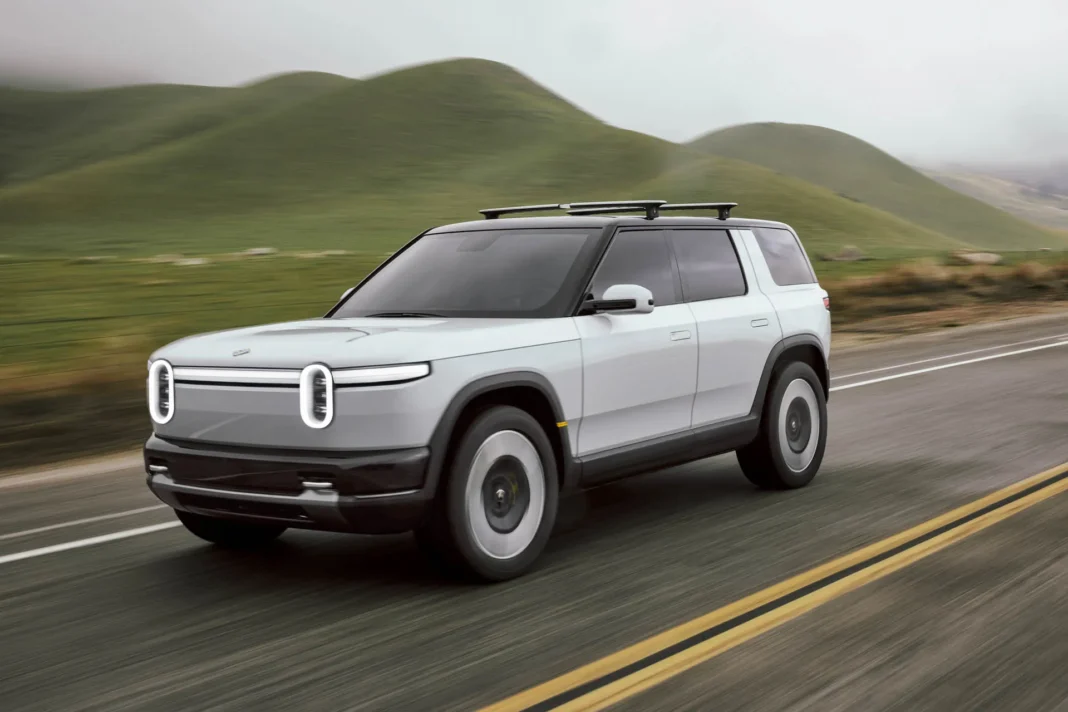- VW’s taking a larger stake in Rivian, now up to $5.8 billion
- Rivian and VW’s joint venture has formally been created
- The Rivian R2 in 2026 and a Volkswagen in 2027 will be the first vehicles to feature the new joint-venture electrical architecture
The Volkswagen Group on Tuesday announced that it would up its investment in Rivian as the two companies officially launched their previously announced Rivian and VW Group Technology joint venture.
The joint venture was announced in June with an initial investment of $5 billion from the VW Group over a period of years in exchange for access to Rivian’s electrical architecture and software development expertise.
On Tuesday, the VW Group and Rivian announced that the investment would be increased to $5.8 billion. This is the result of VW pulling ahead some future capital and changing the original deal structure, the companies said.

Rivian CEO RJ Scaringe (left) and Volkswagen Group CEO Oliver Blume
Under the updated terms of the deal, $1.3 billion is set to be spent on software development, a further $3.5 billion will be spent by the VW Group to purchase shares of Rivian, and the remaining $1 billion is earmarked for a potential loan by VW to Rivian.
The joint venture, which is expected to start operations Nov. 13, will focus on developing and supply electrical architecture and software systems to both companies, with features like network hardware and software stacks that enable vehicles to be updated over the air for their full life cycle mentioned during an investor briefing.
At the same briefing, the two companies confirmed that the first vehicle to use these jointly developed systems will be the Rivian R2 crossover due in 2026. The additional investment from VW may be the difference in getting that lower-priced model across the line, as well as funding further development of the hatchback-like R3 and several additional models Rivian has teased.

Rivian and Volkswagen Group electrical architecture and software stack
The VW Group said that some Volkswagen-brand models will likely be the first of its vehicles to use the new systems in 2027, followed by vehicles from Audi and the new Scout brand. VW Group CEO Oliver Blume said some sports cars could also use the systems, without providing further details.
The joint venture will initially be based in Silicon Valley and employ around 1,000 engineers. Three additional sites in the U.S. and Europe are planned for the near future.
Both companies noted that they were open to additional collaboration in other areas such as batteries, whole vehicle platforms, and joint production, but said that would be outside the scope of the current joint venture. It also appears Rivian won’t join development of the VW Group’s Scalable Systems Platform (SSP) for next-generation EVs which, according to a report published in July, is being delayed by software issues.

